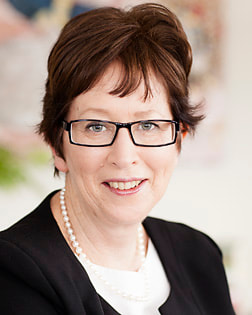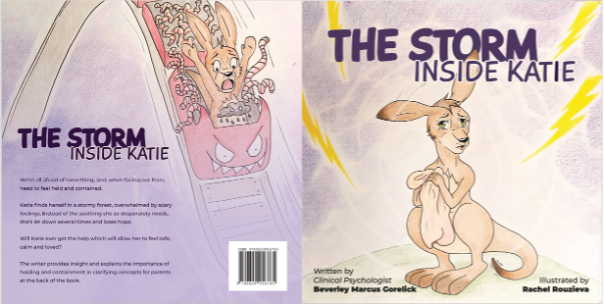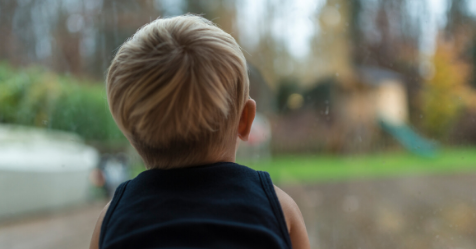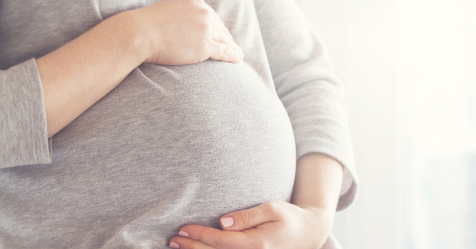|
Helping to soothe your child’s anxious feelings is one of the most precious gifts you can give them. Every time you help soothe your child’s big feelings, your child develops a trust that their difficult feelings can subside. Over time (a long time), and with your help, children eventually learn to regulate their own emotions.
The reality is that parents don’t always know this. They often find themselves at a loss about how to manage or change their child’s “difficult” behaviour (e.g. tantrums, defiance, not listening, refusing to participate, bed-time struggles). The problem with the behavioural management approach is that it may not consider the feelings that the child is experiencing – the feelings that underly their challenging behaviours. Behaviour is communication When children ‘act out’, ‘misbehave’, ‘don’t listen’, withdraw, what are they actually communicating? Usually, young children don’t have words for the overwhelming feelings inside them. And they certainly don’t know how to make sense of them. Children’s challenging behaviour may be a result of major life changes or experiences. Examples of such experiences include:
These are just a few examples of experiences that can impact children and result in them feeling emotionally disorganised or overwhelmed. What we may see, is their challenging behaviour. Take for example the child who gets a new sibling. While many children delight in the experience of having a new sibling, others can struggle. Often, it’s a mixed bag of feelings. An emotional storm may be brewing in even the most excited of siblings. When a new baby comes into the family, the older child has typically been through the pregnancy that may have resulted sickness and/or reduced energy levels in their mum. Then there’s the anticipation of the baby being born and the child being separated from his/her parents at the time of the birth. Although seemingly excited to be an older sibling, the child may be affected by these changes, and may feel insecure and displaced. Often there is a regression in the older sibling’s behaviour - this is normal. What we may see, is their challenging behaviour. Suddenly, a mum and dad who were exclusively theirs are shared by a newcomer to the family that everyone is cooing over. He/she might feel pushed aside. The child might feel angry that the new baby is needy and has access to mum’s body in a way that the he/she no longer does. Watching mum breastfeed might bring up feelings of envy that are hard for the older sibling to understand. Mum and dad are likely to be exhausted and the older sibling may not be able to make sense of this. The older sibling may tantrum, regress (needing parents more), and unhelpfully, be labelled as “difficult”. This storm inside the child needs to be processed and understood. For this to happen, parents need to see the feelings that lie beneath the behaviours, and help the child put words to them. Are you feeling angry because Mummy has to feed the baby again and you really wanted to play? Are you feeling sad that baby won’t stop crying? You so wanted to read your book with me, then baby started fussing? Are you feeling a bit cranky that baby needs me so much? It doesn’t seem fair does it? The first step in helping children to process their feelings is showing them that their big feelings don’t scare or upset you. That you are there for them is all of their emotional chaos. Then, children need to be heard and validated. With kindness, understanding, and patience, big feelings can settle. When the big feelings settle, there can be a space to come up with a solution. How about I read your book to you while I’m feeding baby? When I’ve changed baby’s nappy, I’ll put him in the carrier and sit down on the floor with you to play leggo. How about when Daddy gets home, you and I have a bath together and play with your dinosaurs? To have empathy for your child’s emotional world, it might be useful to think about a time in your life when you felt like you had a storm going on inside you. Certain experiences leave us feeling anxious or unsettled, and in these moments, it can feel as if we are falling to pieces on the inside. You may feel like nobody else can see this, but you feel awful. You might not even know what you need at such times and may find yourself withdrawing, getting angry or feeling quite tearful. These overwhelming feelings can impact how you function, as well as your capacity to think clearly and make sense of things. What can help is having a trusted friend or therapist sit with you and tune into your emotions, show they understand you (without judgement), and help you to disentangle the knots of overwhelm that you are feeling inside yourself. With this, you might find yourself breathing deeper, and thinking clearer. Overall, feeling calmer. The same applies to children. They don’t have words to say what they are feeling, but their behaviours reveal something to us – that there is a storm inside them. A word from the author In my psychology practice, I often encounter parents who have trouble when it comes to helping their children manage their anxiety and other difficult feelings. This prompted me to write a psychologically based children’s book drawing from both theory and clinical experience. The book is titled The Storm Inside Katie with characters that are easy to relate to and identify with for both children and parents. My aim was to provide an accessible resource that reads like a story for children but helps parents understand the impact of overwhelming feelings and the various ways in which parents mays respond to children when they are feeling afraid or unsettled for various reasons. The book also provides an opportunity for meaningful conversations between parents and their children These communications may coincide with parents trying to deal with their own difficult feelings and experiences, which can all feel quite overwhelming. It can be extremely difficult to organise your child’s feelings if you are feeling emotionally unsettled yourself. If you are struggling, it may be helpful to consult with a psychologist to address the storm inside you, and to receive guidance in making sense of and responding to your child’s storms. Written by Clinical Psychologist, Beverley Marcus. The Littlies Clinic, Melbourne. Copies of The storm Inside Katie are available to purchase by emailing [email protected] to place your order. New fathers appear to have it easy. They are spared the physical and emotional discomfort of pregnancy. They don’t endure the pain of childbirth. They don’t spend the weeks and months of new fatherhood trying to get used to a body that has inextricably changed and no longer feels familiar. While men don’t have the physical signs to show for it, the transition to fatherhood is no less profound, exhilarating, and daunting. In my work with new parents, I am often reminded that the feelings and worries experienced by dads can be somewhat overlooked. What’s more, a lot of men have trouble talking about them. What is my Role?
Some fathers question their roles in the early weeks and months, when typically mothers are the primary caregivers. As a new father it’s easy to feel a bit left out. However, research tells us that fathers’ relationships with their newborns make a significant impact right from birth. Actually, it starts long before birth, because babies begin to recognise their father’s voice at around 22 weeks of pregnancy. So when that bump starts to grow, it’s time to get talking. The most important thing dads can do for their newborns is to simply spend time with them – cuddling, rocking, talking, singing, and settling. Getting to know each other in a hands-on way is good for everyone. For inexperienced dads, on the job training is the best confidence and relationship builder of all. And the benefits for babies are vast. Several studies suggest the quality and quantity of baby-father involvement directly impacts language development and children’s sense of security growing up. There is also research showing that babies with strong attachments to their dads tend to have fewer behavioural problems later on. Not surprisingly, research also tells us that when mothers view their partners as competent - when they provide encouragement, and believe that parenting is a joint venture - men are more likely to be involved and value their roles as fathers. The key is mothers viewing their partners as competent. This is an issue many couples struggle with, and it comes up regularly in my work with new parents. Because mothers tend to spend more time with their newborns than their partners do, they clock up many more practice opportunities, and can feel that the way they have learnt to do things is the only way. So whether it’s changing nappies, settling a fussy baby, or managing the bath routine, dads can easily get left behind in the skill development stakes. An all too frequent result can be mums hovering on the sidelines offering unsolicited advice, or worse, taking over and doing it ‘properly’ themselves. The result? Dads can feel inadequate, resentful, and less motivated to try the next time. The impact of not letting dads learn on the job can be mums feeling unsupported. Where has my relationship gone? Becoming parents calls for huge adjustments in relationships. Changes in roles, workloads and finances, not to mention the sheer exhaustion of caring for a baby. These pressures can impact even rock solid partnerships. Worries about how a baby may or has changed their relationship are among the most frequent concerns voiced to me by fathers. Some fathers experience feelings of helplessness as they watch their partners overwhelmed by tiredness, or having difficulties breastfeeding. Some women experience postnatal depression, and dads often feel at a loss as to how to ‘fix it’, feeling inadequate that they are not being able to make everything OK. For other dads, it’s the loss of emotional connection that has been chipped away by the constant tension of tiredness and frayed patience. They can feel like they’ve lost their best friend amidst the unfamiliarity and daily grind early parenthood can bring. Some fathers talk about feeling in competition with their babies - for time, attention, and affection. Even while understanding their partner’s all-encompassing focus on their baby, dads can feel invisible or fearful that there’s not enough love to go around. The reality of course, is that the birth of a baby can test even the strongest relationships. Even good relationships can stumble under the weight of it all. But the good news is that the overwhelming majority tend to bounce back again once everyone is getting more sleep, things settle down, and issues like sharing the workload are resolved. Remember, parenting is a marathon, not a sprint. It takes time and practice for both of you to adjust to being mum and dad, to learn the ropes, and to find space in there for each other. Here are some points to consider: · Communicate with each other. It’s a vital ingredient in sharing your worries and doubts, asking for support, and working as a team · Practice empathy which means being open to each other’s experiences and feelings, especially the ones that are different to yours · Avoid competing about who has it tougher – nobody wins this one and it’s a certain resentment builder · Seek professional support if worries become too big, anxiety or low mood become habitual states, or you need help adjusting to the change. Remember, dads experience postnatal depression and anxiety too. This post was written by Dr Karola Belton Clinical Psychologist Antenatal & Postnatal Psychology Network The children are asleep. The house is quiet. You're exhausted. Time to sleep.
But you can't. Your mind is rehashing the day. Thoughts come up about tomorrow, next week, the future. And then you start worrying about not being able to sleep. You look at the clock. Time is moving. You think "how am I going to get through tomorrow?" You try deep breathing. That helps. But your mind is still going. You say to yourself "stop thinking and go to sleep". You put on relaxation music, but your mind is still going. You start to feel anxious. You count sheep, but your thoughts creep back in. The more you 'try' to sleep, the more sleep eludes you. Sleep onset difficulties strike many busy parents. Dr Luc Beaudoin, is an adjunct Professor in Cognitive Science at Simon Fraser University. He says that when our brain's executive function is 'firing', we are accessing memory, evaluation, planning, scheduling, and problem solving. He refers to this as "mental peturbance". When these mental actions are in play, our brains are too active to settle to sleep. Dr Beaudoin has developed a simple cognitive tool that interrupts and counteracts these processes. It's called "cognitive shuffling". The approach moves you from of a high state of alertness, towards drifting off to sleep. Cognitive shuffling scrambles your thoughts so that your brain can't try to make sense of things. It interrupts the processes of memory, evaluation, planning, scheduling and problem solving. Here's how it's done.
Sleep deprivation is a harsh reality of parenthood, but there's nothing more frustrating than not being able to sleep because of your own mind. Dr Beaudoin's cognitive shuffling technique, may be the answer to settling your busy mind, and optimising your sleep. If you need a little help, Dr Beaudoin has translated cognitive science into a sleep app called mysleepbutton.com®. Publications: http://www.sfu.ca/~lpb/pubs.html Written by Dr Renée Miller Perinatal Clinical Psychologist Antenatal & Postnatal Psychology Network Perfection-striving is a bottomless pit. There is no end. You continually strive to be better, yet the goal posts keep moving. Not only does perfection elude you, it pushes you further away from feeling good enough.
We often see new mums who with the best of intentions for their babies and families, are striving to be ‘perfect’ mothers – to parent in the ‘perfect’ way. The reason they are in therapy, is often because this endless pit of striving sets them up to fail, and this perceived failure feels intolerable. There is typically a lifetime of layers beneath the surface of this striving, which we explore with our clients in order to make sense of the past messages they may have integrated, and their resulting automated drives. The key is to de-automate, understand the fruitless endeavour of perfectionism, and change perfectionistic behaviour. Why? Striving for perfection can seriously limit our capacity to enjoy life. Perfection-striving is often associated with all-or-nothing or black-and-white thinking. For example, the mum who won’t go to mother’s group if she is going to be late, misses out on the building of relationships with other mums (who are often late themselves). The mum who won’t exercise if she can’t exercise three times per week, misses out on the benefits of some exercise and a little time-out. The mum who won’t invite people over unless she gets the time to make the house look immaculate, misses out on the fun and spontaneity of having other new mums and babies around for her own and her baby’s social well-being. The mum who won’t let her partner settle the baby because he/she won’t do it like she does, misses out on her partner’s support and her partner's growing bond with the baby. The bottom line is that there is no one way, and there is no right way. When your hard and fast rules about how things should be, get in the way of the things that give your life meaning (i.e. the things that you really value) ask yourself if there is a middle ground? The middle ground is a place where we strive for being ‘good-enough’ mothers. Perfectionists usually see this term “good enough” as meaning mediocre. However, ‘good-enough’ means good enough. For example, getting to mothers group late is better than not going at all. It can be a good laugh and a supportive environment. Exercising whenever possible (despite wishing to achieve three exercise sessions per week) is better than nothing, and is likely to become easier to achieve over time. Inviting friends over, even if the house is untidy, shows them that you are human after all (very comforting for most people), and demonstrates that you value friendships more than your domestic high standards. Letting your partner settle the baby even if he/she does it differently to you, knowing that this is their chance to discover what works, and to establish a good bond. The middle ground is a much kinder place – a place of acceptance, and openness to experience. Try it. You’ll see. You might even find that not only can you be a 'good-enough' mum, you can be a great mum! If these tips are not enough, and your need for perfection is causing you distress, it may be worthwhile to seek help. Written by Dr Renée Miller Principal Perinatal Clinical Psychologist Founder Antenatal & Postnatal Psychology Network Co-founder The Perinatal Loss Centre We left the paediatrician's office feeling shocked, gutted, and numb. We were told that our child's delayed development could be an indication of Autism Spectrum Disorder. We were barraged with names and details of specialists who could continue assessing Henry and provide therapeutic support. What? Autism? In the days that followed we watched Henry's every move, his every expression, the way he played, ate, and interacted. The way we saw our beautiful boy had changed since the excruciating hour and a half we spent answering questions, completing questionnaires, and trawling through our memories of Henry's developmental milestones (or lack thereof). With each milestone he appeared to have 'failed', our hearts sank further and further. We were reassured about the services that could help Henry to learn some of the skills he would need in life - a life we now imagined playing out in the bleakest of ways. We began contacting the names of the practitioners we had been given. Dying inside that our boy was now going to be scrutinised, assessed, and labelled. Putting one foot in front of the other, we followed directions to implement assessment and support services for Henry. But who is there to support us? Who can help us to cope with the grief, the trauma, the rising panic? How do we parent our boy now? Who are we now? What does this mean for our other children? When a child is diagnosed with a developmental disorder such as Autism Spectrum Disorder, there are a multitude of services to support the child. But parents often feel out at sea themselves. Where do they turn to understand their role as parents? Who do they see to recalibrate their views and expectations of their child? How do they manage with the challenges their child brings to the family?  Dr Alison Wilby is a Clinical Psychologist who supports parents facing developmental concerns in their young children (under 8 years old). Alison understands the trauma, the profound disappointment, and the fear that parents can feel when they are told there is 'something wrong' with their child. Integrating over 20 years of working with new parents and young children (particularly where there are significant developmental challenges), and with a PhD on the role of parenting in early social emotional development, Alison is well placed to support parents traversing the multidisciplinary landscape of the Autism Spectrum. Alison is a warm and caring practitioner who helps parents understand how their child thinks and behaves within the challenges and strengths each child displays. Alison provides assessment and support for parents who are concerned about the development of their infant or child, and she provides tools to manage difficult behaviour while helping parents to gain clarity on the underlying causes. Alison has a particular interest in Autism Spectrum Disorder and anxiety disorders in early childhood, including young children with selective mutism. With her background in parent-infant settings, Alison works with children who have been affected by a parent’s mood disorder. In situations where mothers have been hospitalized, Alison supports children who are struggling with the distress of separation. Irrespective of the diagnosis a child might receive, Alison assists parents to build confidence in their parenting, working with couples to help them to determine optimal strategies for parenting their particular child. Alison's ultimate aim is to help parents to parent with love and acceptance of their child, and to see the unique capabilities that every individual child possesses. Alison is located in Melbourne’s south east (Caulfield North, Hampton and Glen Iris). Read more about Dr Alison Wilby here: https://www.antenatalandpostnatalpsychology.com.au/dr-alison-wilby Article written by Dr Renée Miller Principal Clinical Psychologist Antenatal & Postnatal Psychology Network Life feels hard. You’re feeling anxious, stressed, overwhelmed. You’re feeling flat, lost, unhappy. You’ve been through difficult life experiences that are weighing you down or popping up unexpectedly. Perhaps you’re not functioning as well as you’d like to.
Let’s face it, we all struggle at times in our lives, especially when it comes to becoming parents, and everything that goes with entering and enduring this emotional life stage. You might be contemplating talking to someone, but also wondering “what would be the point?” “How could talking to a therapist help me?” Nowadays people rely on reviews to find out about other people’s experiences. As psychologists, we are prohibited from eliciting and publishing client testimonials, making it difficult for people to find out how therapy might have worked for others. The psychologists at the Antenatal & Postnatal Psychology Network constantly receive feedback from our clients about their experiences of therapy. So we decided to pull together feedback we’ve received over the years, to bring to light the commonly reported benefits of therapy. Please note that no identities are revealed in the compilation of this list. The headings are written in the first person and are in no particular order. Feeling heard, accepted and validated Some people come to therapy reporting that when they were growing up, their feelings were not heard. With the best of intentions, parents can minimise or dismiss the feelings of their children, sending messages that their feelings are a sign of weakness, that they should just get on with things, or that their feelings signal catastrophe. These messages can play out in unhelpful ways in adulthood. Clients have reported that therapy provides them with a safe environment in which to identify and share their feelings. Once a good relationship and rapport has been established with their therapist, clients value that their feelings are accepted, are encouraged to be ‘felt’ (rather than shied away from or feared), and that their feelings are validated and understood (“it makes sense that you feel that way”). Feeling ‘lighter’ by getting things off my chest In some instances, a client’s therapist is the first person to whom they've disclosed difficult past experiences, distressing thoughts, or shameful feelings. By simply getting this information out, clients report feeling lighter – less consumed by their self-criticism, shame or fear of being judged. Within a trusted client-therapist relationship, repair can begin with the acceptance, validation and non-judgement the therapist brings. Clients ultimately learn to do this for themselves. Learning that all feelings pass Interestingly, many clients report that being allowed to feel and express their feelings, along with having their feelings accepted and validated, provides an environment within which they learn that feelings evolve and change over time. By talking things through, feelings shift, and the intensity of the original feelings (often shame) diminishes. Understanding why I think and react the way I do In exploring the past, people learn about the ways in which they experience, and deal with their feelings – both internally and in relationships with other people. With insight into why they think and feel the way they do, their responses can be de-automated, giving them more choice and capacity to respond more adaptively. Clients learn to bring self-compassion to what was once habitual self-criticism or shame. Recognising that my expectations and assumptions underlie my feelings and behaviours. In exploring the past, people learn about how their expectations were formed and how their expectations cause them to feel and react in certain ways. In therapy, clients learn to challenge their expectations, and to refer to their values as their guide, rather than to their habitual internal narratives. Examples of unhelpful beliefs: Mothers should bond with their babies immediately. As a mother, I should know exactly what my baby needs at all times. Everything I do should be done perfectly otherwise I’ve failed. If I don’t get enough sleep tonight, I won’t be able to function tomorrow. I am uninteresting to others, so I avoid meeting new people. My child should know to behave well when we go out. Examples of assumptions: She thinks I’m a terrible mum because she uses cloth nappies, and I don’t. My partner won’t know what to do if I leave the baby with him. The mothers at mothers’ group think I’m a bad mum because my baby cries more than the other babies. No one cares about my grief after my miscarriage. I’m a bad person because I had that awful thought. If people knew the real me, they wouldn't want to be with me. Learning to see another person’s point of view /emotional experience It can be enlightening when people realise that they have been making assumptions about the behaviors or responses of others. They learn that there are many potential explanations for other people's behaviour, which may not actually be about them. When people learn about their own projections onto other people, they also learn that other people project their fears too. When clients see that everyone sees things from their own perspective, they can come to recognise that trying to please others is futile, and that even if they are being judged by another person, they can tolerate it as it is not a truth about them. Learning how to live in the present and not engage in ‘what if’ thoughts Clients learn the value of living in the present moment, of asking themselves “what’s required of me now”, rather than entertaining a litany of catastrophic thoughts about what could go wrong in the future. With practice, recognising and stopping “what if” thoughts can liberate clients from worry. Our clients have told us that one of the most helpful tools they've learnt in therapy is this - "Managing Your Mind: Taming Worry" (watch video on Youtube). Learning to accept what I can’t control Clients can become practised at recognising what’s not in their control. As a result, they can develop more confidence about acting on what's actually in their control, and letting go of what is not. Learning skills Skills learnt in therapy include
Processing traumatic experiences Some clients seek therapy to work through specific traumas, in particular, traumatic birth experiences. Some of our psychologists are trained in EMDR (Eye Movement Desensitisation and Reprocessing), which is a time-effective, evidence-based approach aimed at alleviating the distress associated with traumatic experiences. In summary Overall, clients report becoming better versions of themselves - more tolerant of their own and other people's imperfections. They report feeling worthy of being cared for and seeing the value in caring for themselves and being cared for by others. They report an improvement in their moods and relationships, a lowering of their levels of stress and anxiety, an increased capacity to cope, and a strengthening of their sense of selves. If you live in Victoria and feel that therapy may be of benefit for you, find a psychologist here. Written by Dr Renée Miller Principal Clinical Psychologist Antenatal & Postnatal Psychology Network Miscarriage is commonly dismissed as the 'loss of a pregnancy'. For happily expectant parents, miscarriage is the loss of their baby. It represents a loss of parents' hopes, dreams, and future plans. For many people, the idea of parenthood is conceived some time in their early lives. Although the timing of these inklings differ for different people, there are unconscious stories people amass as they themselves were parented, and as their developing selves evolve over time. A kind of knowing that one day, they too will become parents. For some people, an opportunity to rectify or better the less-than-ideal parenting they received.
Often the work lives and the intimate relationships of hopeful parents have come to a point where there is an existential readiness for children. A baby becomes nurtured in their minds. The woman's body is primed to create and protect a precious new life. Once pregnant, a woman (and couple) typically begin to imagine their new lives. Anchored by the due date of their baby and alongside the lifestyle sacrifices made for optimal gestation, they begin to integrate their baby into their decision-making, into their future plans, into their homes, and into their families. Once announced, the broader family narrative may begin to incorporate the baby. When a pregnancy ends in miscarriage, the physical and emotional ramifications can be devastating. The baby conceived of in body and mind, has died. The process of miscarrying can be painful, protracted and traumatic. The woman may have felt or seen her tiny baby, and she may regret where her baby ended up. Most people are unaware of what a woman might have experienced in the midst of miscarrying, and may have no idea about the depths of her grief over the loss of her child. When miscarriage happens repeatedly, hopes are raised and dashed time and time again. The accumulation of loss and grief can be crippling, with plummeting self-worth, and for some women, increased self-blame, hopelessness and depression. Women often remark that they observe other women seemingly 'popping out' babies with little effort. Pregnancy and babies everywhere. There is no escape from the enthusiastic pregnancy and birth announcements. And even worse, the unplanned, 'surprise' pregnancies that can engender a silent rage in the bereaved parent, who is acutely aware of the inequities of parenthood. How easy it seems for others. How alone the woman feels. So desperately wanting to settle into the next phase of life. Wanting what everyone else seems to have. Feeling guilty for her envy. Avoiding her usual supporters, for fear of her inability to conceal her grief. Questioning what she is doing wrong, and why this is happening to her. The staggering truth is that at least one in four pregnancies end in miscarriage. The sad reality is that many women don't talk about it. The secrecy surrounding miscarriage is in part due to the convergence of women's perceived shame (as if in some way it is their fault), and society's minimisation of the loss not being as valid as the loss of a living child. As a result, isolation can accompany the pits of grief, maintaining the illusion that other women and couples - seemingly unaffected by loss - conceive easily, and give birth to healthy babies. This misguided belief ultimately reinforces the perceived shame, and renders the bereaved parent alone in their mourning, believing that no one really understands what they are going through. Interestingly, when women open up about miscarriage, they are often surprised, and comforted by the number of other women who have also experienced loss. Women can find some solace in online support groups, but the supportive nature of these groups is time limited, as people's situations change. Miscarriage brings emotional implications for subsequent pregnancies. Although relieved to be pregnant, the woman no longer feels the unbridled joy she may have once felt. Instead, there can be questions, doubts, fears and anxieties. Thoughts and feelings that need to be managed, milestones that need to be passed, uncertainty that needs to be endured, and hopes and dreams that need to be quelled. This is the devastation of miscarriage. If you are reading this because you have experienced miscarriage, we are so sorry for your loss. If you are interesting in supporting research into miscarriage, find out more here. Written by Dr Renée Miller Principal Perinatal Clinical Psychologist Perinatal Loss Educator Co-founder The Perinatal Loss Centre, Melbourne, Australia Founder Antenatal & Postnatal Psychology Network, Melbourne, Australia Typically Mums carry the mental load. They find themselves managing a heap of hidden tasks that involve researching, planning and organising for the family. Remembering to buy those thoughtful birthday gifts for little friends, meal planning that caters to the health and idiosyncrasies of the family; organising, researching, scheduling and booking after school activities and play dates. Reading countless social media parenting posts with their children’s emotional well-being in mind. And this is just a snapshot of a mother’s brain. The work that goes on in our minds is invisible. You might see mum buying and wrapping the birthday gifts, shopping for food and cooking meals, driving to after school activities, going to play dates at friends’ houses. What you don’t see, is the thinking that goes on behind the scenes. Many of my clients struggle with this load, especially when their expectations of themselves are overly high or unrealistic. Many modern women say that they thought their partners or husbands were ‘modern guys’, men who valued gender equality, equal rights, in some cases even espousing the virtues of feminism. Then the children came. It can take women some time to realise the inequality that slips in behind the scenes. The default to traditional roles embedded in the psyche of their partners, and ironically, of themselves. The unfortunate result can be overwhelm and resentment. Resentment at their partners for happily allowing the load to fall on their shoulders, resentment at their partners for not understanding the extent of the load, and anger at themselves for enabling this inequity. Dr Gwyn Rees, psychologist at the Antenatal & Postnatal Psychology Network, makes the following suggestions:
https://www.gottman.com/ https://www.drdansiegel.com/ Pregnancy is a time of great uncertainty - a time when horror stories are rife and fears about harm befalling one’s baby are common. Anxiety can be particularly significant for women who have experienced pregnancy losses (or vicarious losses through family or friends); been through the ‘roller coaster’ of fertility treatment; received diagnoses of fetal anomalies; or who have experienced a previous traumatic birth. In addition, an anxious temperament can predispose women to heightened anxiety in pregnancy, especially in the face of stressful life events.
Although anxiety tends to be seen as the 'normal' emotional landscape for pregnant women, elevated levels of anxiety can be debilitating, and can contribute to emotional disturbance in the postnatal period. Symptoms of antenatal anxiety might be overlooked by common symptoms of pregnancy such as increases in heart rate, shallow breathing, and sleep disturbance (Wenzel, 2011). In order to identify whether symptoms are problematic, the questions for women to ask themselves and/or their health practitioners are 1. "Are my symptoms interfering with my life (e.g., avoidance of usual activities for fear of feeling anxious, relationship problems, sleep disturbance, constant reassurance seeking)?" and 2. "Are my symptoms causing me distress (e.g. upsetting or intrusive thoughts and/or distressing symptoms in the body)?" (Wenzel, 2011). Women do not need to experience high levels of anxiety and worry in pregnancy or the postnatal period. Cognitive-Behavioural Therapy (CBT) can help women to learn how to manage both the physiological (body) symptoms, and the mental worry, which can contribute to a calmer pregnancy, birth, and adjustment to new parenthood. Perinatal Clinical Psychologist, Dr Renée Miller shares a useful video: Managing Your Mind: Taming Worry References Wenzel, A. (2011). Anxiety in childbearing women. Washington: American Psychological Association. Wenzel, A. & Kleiman, K. (2015). Cognitive Behavioral Therapy for perinatal distress. New York: Taylor & Francis. ORIGINALLY PUBLISHED JULY 2020. When we imagine having a baby, our minds create narratives about the hoped-for child. Along with the child we envisage raising, we hold scripts about the kind of parents we hope to be.
Then we become pregnant, and these fantasies intensify. The narratives we hold are formed by our past, and by the meaning we derived from the relationships we’ve experienced and observed. We unconsciously amass information and draw conclusions about parents and children, family compositions, siblings, and the meaning of gender within these relationships. When we find out the sex of our baby (whether in utero or after birth), this intricate web of preconceived ideas springs to the surface. Stories about ourselves, our relationships, our fears, our regrets, and our desires. Some or all of these things can be wrapped up in our perceptions about the sex of our baby. Not everyone has a strong preference for the sex of their baby, but for some women (and less commonly, men), the gender of their baby is steeped in personal meaning. When the baby is not the hoped-for daughter or son, some people experience mild to extreme disappointment, grief, and even depression. Before you judge with “surely a healthy baby is all that matters”, let’s make it clear that a healthy baby is the wish of all parents. But for some parents, the meaning of their baby’s sex is so deeply-rooted in their psyches that the loss of their hoped-for child can be devastating. To truly understand gender disappointment and the grief women can experience, we need to respectfully understand the particular meaning for the individual. People’s reasons and stories differ uniquely. However, there are some common themes. The themes From the vast response I received to my Facebook post (both publicly and privately), there were some noteworthy themes. 1. Gender disappointment appeared to be more commonly experienced by women. A small proportion of women spoke about their male partners’ gender disappointment (equally in relation to wished-for boys as compared to wished-for girls). 2. The majority of women’s gender disappointment was in relation to the preference for a girl. This was followed by the preference for one of each sex. And less commonly, by the preference for a boy. The wish for a girl was associated with the following narratives:
The wish for one of each was associated with the following narratives:
The wish for a boy was associated with the following narratives:
“Why can’t you just be happy to have a healthy baby?” (A common judgement) As indicated by the women who responded to my post, gender disappointment does not negate their appreciation and gratitude for a healthy baby. Nor does it (in most cases) preclude loving the baby who was born. The disappointment and grief is about the baby who was not born, the baby who had been yearned for and mentalized, in some cases from as far back as a woman can remember. Extrapolating from the many reasons women offered for their gender disappointment, I propose that these feelings can be understood by three types of projections: 1. REPLICATION Women seek to replicate what they experienced or witnessed, because it was positive. 2. REPAIR Women seek to repair what they experienced or witnessed, because it was negative. 3. REFLECTION OF SELF The wished-for child is a reflection of the woman’s perceptions of self (identity, regrets, hopes, fears, dreams). The grief associated with gender disappointment is real, and can run deep. The grief When the sex of one’s child is opposite to that of the wished-for child, and the family composition differs from the imagined picture, there is a loss of a strongly held ideal. An ideal that may sit alongside one’s self-identity (including one’s cultural identity) and one’s amalgamated past. When this is the case, the depth of grief may be intense. Sadly this grief tends to be disenfranchised. Most women believe that other people don’t understand their distress (and indeed, many people do not), so they grieve alone or minimise their feelings to reduce cognitive dissonance. Women often feel ashamed and guilty for their feelings of disappointment. They judge their feelings as unjustified because they haven’t lost a ‘real’ baby. And when they have lost a baby or have experienced fertility difficulties, the guilt and shame can be worse. Beneath their shame there may be questions like these:
The grief from gender disappointment needs time for reflective processing to acknowledge and work through the feelings and layers of loss. How does therapy help? In some cases, the feelings can be overwhelming and may affect a woman’s mental health and her capacity to bond with her baby. Therapy can be a helpful way to learn to see and appreciate the arrived baby for the unique individual they are, whilst recognising that it’s okay to mourn the loss of the idealised baby. Therapy can also help women to examine their assumptions and biases about gender, and the meaning they’ve attributed to it through the lens of their past. The truth of the matter The truth is that our narratives are not truths. Our narratives are stories we’ve compiled over the course of our lives. These stories are based on subjective conclusions we’ve drawn about boys and girls, sons and daughters, sisters and brothers, in the context of our own history. As we parent the children we have, we grieve many idealised images or expectations along the way. There are all sorts of things parents wish for in their children that may not come to fruition. Who they are, how they think, what they do, can differ considerably from what we had hoped for and from who we are. Once again, our unconscious wishes to replicate, repair and reflect ourselves, stem from the experiences and meaning derived from our pasts. In essence, parenting is a constant process of recalibrating what we wished for in accordance with what we have. Ultimately, when we are not blinded by our projections, we free ourselves to accept and cherish our children for the unique individuals they are. This doesn’t mean we don’t have pangs of sadness, wondering what life would be like with that dreamed for little girl or little boy. But when we acknowledge our grief and accept our reality, we can more readily foster the kinds of relationships and experiences we value with our children, irrespective of their assigned sex. This article was written with stories shared both publicly and privately on the Facebook page of the Antenatal & Postnatal Psychology Network. Compiled and written by Dr Renée Miller, with gratitude to the many women who shared their feelings and experiences on this deeply personal topic. Principal Perinatal Clinical Psychologist Antenatal & Postnatal Psychology Network |
AuthorPosted by Dr Renée Miller Topics
All
|
|
We acknowledge and pay respects to the Elders and Traditional Owners of the land on which our psychologists practise.


















 RSS Feed
RSS Feed

